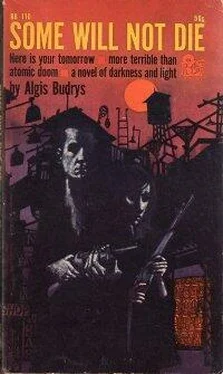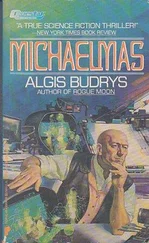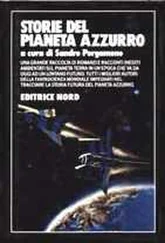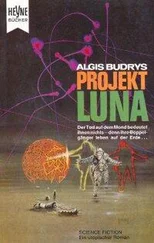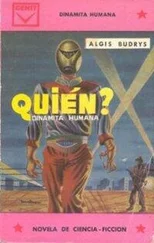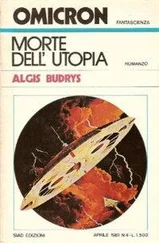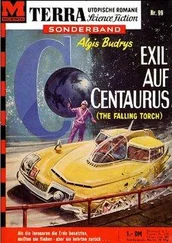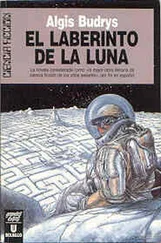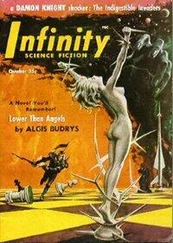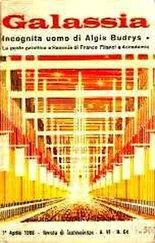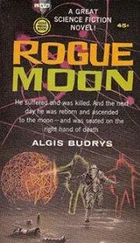Algis Budrys - Some Will Not Die
Здесь есть возможность читать онлайн «Algis Budrys - Some Will Not Die» весь текст электронной книги совершенно бесплатно (целиком полную версию без сокращений). В некоторых случаях можно слушать аудио, скачать через торрент в формате fb2 и присутствует краткое содержание. Год выпуска: 1961, Издательство: Regency Books, Жанр: Фантастика и фэнтези, на английском языке. Описание произведения, (предисловие) а так же отзывы посетителей доступны на портале библиотеки ЛибКат.
- Название:Some Will Not Die
- Автор:
- Издательство:Regency Books
- Жанр:
- Год:1961
- ISBN:нет данных
- Рейтинг книги:4 / 5. Голосов: 1
-
Избранное:Добавить в избранное
- Отзывы:
-
Ваша оценка:
- 80
- 1
- 2
- 3
- 4
- 5
Some Will Not Die: краткое содержание, описание и аннотация
Предлагаем к чтению аннотацию, описание, краткое содержание или предисловие (зависит от того, что написал сам автор книги «Some Will Not Die»). Если вы не нашли необходимую информацию о книге — напишите в комментариях, мы постараемся отыскать её.
Some Will Not Die — читать онлайн бесплатно полную книгу (весь текст) целиком
Ниже представлен текст книги, разбитый по страницам. Система сохранения места последней прочитанной страницы, позволяет с удобством читать онлайн бесплатно книгу «Some Will Not Die», без необходимости каждый раз заново искать на чём Вы остановились. Поставьте закладку, и сможете в любой момент перейти на страницу, на которой закончили чтение.
Интервал:
Закладка:
But the ammunition was running low.
His head dropped forward and he jerked it up again, coming out of his doze. Jack twisted a grin at him. “Kinda tiresome, ain’t it?”
Ted grunted. “What d’you hear on the box?” he said, motioning toward the radio.
“Ryder’s coming down, Matt’s coming up. We’re going west. Speed: six inches per hour.”
“They tried that stunt with the PT’s?”
Holland snorted. “Ever try to torpedo a warehouse? They knocked out most of the freighters in the channel, which doesn’t help us a goddamned bit.”
“We’ve got to crack those birds soon, Jack.”
“I know. We’ll be firing Roman candles at them if this keeps up. You got any ideas?”
“No.” He dozed off again, leaning on a garbage can.
Ten days, and he reached his conclusion. It was not an idea, he recognized, no more than Austerlitz or the shelling of Monte Cassino were ideas. It was a calculated decision based on the problem before him, reached in the light of the urgent necessity for the problem’s solution. Again, as with many of his recent decisions, he did not like it when he came to it. But it was the product of logical extrapolation, based on rational thinking and personal knowledge which he could honestly believe he had analyzed completely. Once he recognized this last, he knew he had given himself no choice.
“Problem is to get in close enough to dynamite the warehouses, right?” he said to Jack.
“Ahuh. Been that way for some time, now. They’ve got those boys on the roofs of the houses all around them. They can cover them, and the lads in the houses keep us back. We clean out a house, they toss dynamite down and blow the house to shreds, leaving an exposed area we can’t cross anyway. Can’t go in at night, because this is their territory, booby-trapped. So?”
“Wait for an east wind. Get one, and burn the houses. Go in under the smoke. Blow your way into the first floor, sit back, and wait for them to come out. They don’t come out, blow the second floor.”
Holland whistled. He looked at Ted thoughtfully. “Kind of mean, isn’t it? The guys in those houses get it either way—they come out while we’re waiting in the street, or they burn.”
“Jesus Christ!” Jim said, staring at Ted.
Berendtsen swayed wearily on his feet. Suddenly, he realized that he had done something neither Jack Holland nor Matt Garvin’s son were capable of. He had reached a decision he hated, but would carry out, given the opportunity, because he knew that whether it was right or wrong on some cosmic balance scale, he believed it to be right. Or, not right—necessary. And he could trust that belief because he trusted himself.
“All right,” he said, his voice calm, “let’s get on that radio and talk to Matt. We’ve got an old precedent for all this, you know,” he added dryly.
He led his sooty, weary men back along the broad length of Fourteenth Street, his left hand lost in a bulbous wrapping of bandage, his empty pack flapping between his shoulder blades. He and Jim and the rest of his squad were lost in the haphazard column of Matt Garvin’s men, but his mind’s eye separated his own from the rest. All the men were shuffling wordlessly up the street, weary past the bone, but he tried to read the faces of his squad. There had been many more men in the firing and dynamiting parties, but these had been the ones he led.
He tried to discover whether the men who followed him thought he was right or wrong. But their faces were blank with exhaustion, and he could not let his own expression disclose the slightest anxiety. And then he realized what the hard part of being a man was.
When they reached Stuyvesant at last, he found Matt Garvin. They looked at each other, he with his wounded hand and Matt with a shoulder almost dislocated by the magnum’s repeated detonations. He drew one corner of his mouth up crookedly, and Matt nodded and smiled faintly.
Now I know, Berendtsen thought.
Silently, Ted Berendtsen walked up the stairs while Jim hung back. He ran his hand over his jaws, and his cheeks, under their temporary gauntness, were just as soft. His feet stumbled on the steps.
Jesus Christ, I’m only sixteen! he thought. He grimaced faintly, at this last, illogical protest. Matt had a few more years.
CHAPTER FIVE
Matt Garvin had grown old, for his time. His oldest son, Jim, was twenty-two, and his daughter, Mary, was twenty. His youngest son, Robert, was a little past fifteen. And the civilization he had seen re-established now held all of Greater New York.
It was enough. He could sit at his window, looking out over Stuyvesant Town where the building generators had put lights back in the windows, and nod slowly to himself. It was done. Up and down the coast, where his scouting boats had wandered, he knew there were other cities shining once more beside the broad ocean. In those cities there must be other men like himself, satisfied with what they had accomplished. Soon, now, the cities would spill over—the pocket civilizations would touch and coalesce, and the plague would be forgotten, the land and the people whole again.
Out in the inlands, each isolated by the broken strands of transportation and communication, there would be other cities, all flickering back to life. And in the farmlands between them, where life had not really changed, there would be other men waiting to join hands with them.
He spoke about it, hesitantly, during a meeting with his most important lieutenants. And Ted Berendtsen looked up.
“You’re right, Matt. It’ll happen, and soon. But have you thought about what’s going to happen when it does?”
Jim Garvin looked up sharply. No, his father hadn’t thought about it. Not in detail. Neither had he.
Berendtsen was finishing his point. “We’re not just going to puddle up by osmosis, you know. Somebody’s going to have to build pipelines. And when we get that puddle—who’s going to be the big frog? Somebody’ll have to. We can’t just all live happily ever after. Somebody still has to lead. What guarantee do we have that we’ll enjoy it?”
Jim sighed. Berendtsen was right. They were not one people, separated, now reuniting. They were half-a-hundred, perhaps more, individual civilizations, each with its own society, each with its own way of life. It would not be an easy, or a happy, process.
Matt Garvin looked at Jack Holland and shrugged his shoulders heavily. “Well, what’s your answer to it all, Jack?”
Jim Garvin saw Jack Holland’s side-glance at Ted before he said anything, and nodded quietly to himself. It wasn’t Holland who was really second in command, it was Berendtsen, young as he was.
“I don’t know,” Holland said. “Seems to me that it’s about time for a lot of outfits like ours to be spilling over into the surrounding territory, yeah. But it’s going to be a long time before whatever happens around Boston or Philadelphia makes itself felt up here. They’re doing the same thing we are—pushing out and looking for land to grow food on. We’re out on Long Island, busy farming. Philly’ll be doing the same thing in its own corner. So will Boston and Washington. It’ll be years before we grow up to the size where we’ll need more territory. They’re even smaller. They’ll take more time. By then, we’ll be farther along. We’ll always be stronger than they are.”
Berendtsen shook his head, and the gesture was enough to draw everyone’s attention. “Not quite the whole problem,” he said.
Matt sighed. “No, I guess it isn’t. How do you read it?”
“Our scouting reports from Boston indicate that New England’s having the same old problem. You can’t farm that country worth a damn. There’s a good reason why that was all manufacturing country up there—you can’t feed yourself off the land. There’s nowhere near the population up there that there used to be, of course, but they’re still going to be spreading out faster than anybody else. They’ll have to. They need four acres to our one.
Читать дальшеИнтервал:
Закладка:
Похожие книги на «Some Will Not Die»
Представляем Вашему вниманию похожие книги на «Some Will Not Die» списком для выбора. Мы отобрали схожую по названию и смыслу литературу в надежде предоставить читателям больше вариантов отыскать новые, интересные, ещё непрочитанные произведения.
Обсуждение, отзывы о книге «Some Will Not Die» и просто собственные мнения читателей. Оставьте ваши комментарии, напишите, что Вы думаете о произведении, его смысле или главных героях. Укажите что конкретно понравилось, а что нет, и почему Вы так считаете.
